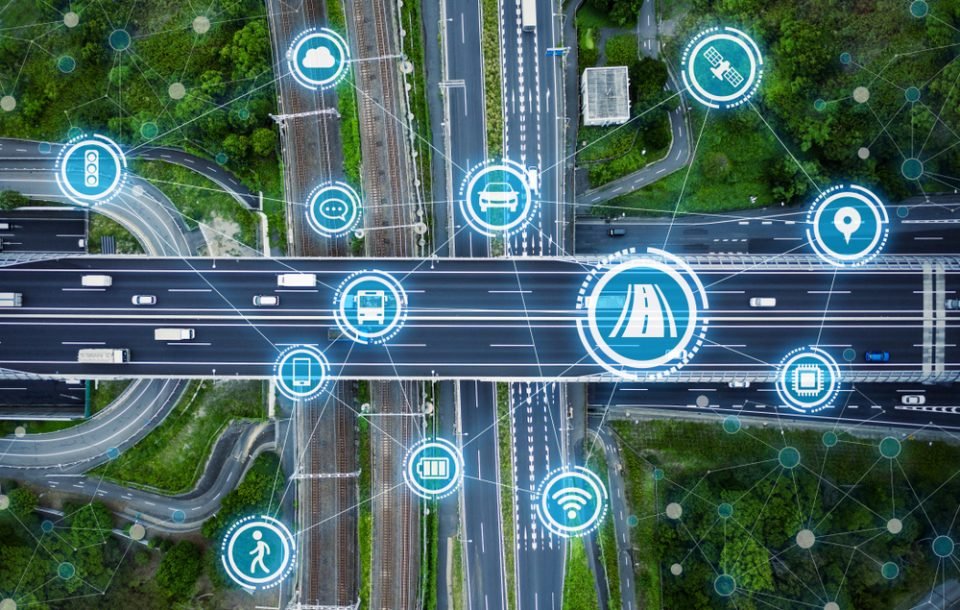Smart cities are essential to address everyday challenges and future risks. Therefore, most of the countries are now putting their best efforts into making smart cities a reality. Transport infrastructure facilities play an essential role in the growth of cities. However, growth in road infrastructures has been inconsistent against rapid urbanization. Smart road infrastructures can change transport by changing its fundamental tools. These changes would take place with advanced street lights, intelligent vehicles, better road signs, and even smarter roads.
Introduction To Smart Road Infrastructure
Smart road infrastructure refers to ways through which the incorporation of technology can change transportation. Availability of the Internet of Things, AI, Edge Processing, and Computer Vision can change most smart city applications, including transportation. Therefore, transportation is no longer just a civil engineering responsibility. Smarter infrastructures will incorporate sensors, gateways, and cloud connectivity. There will be at least four fundamental parts of intelligent infrastructure, including next-generation street lights, road signs, automatic guided vehicles, and smarter highways.
What Are Smart Roads? How Do They Work?
There are many ways through which technology could advance road transportation. The idea is to identify a particular problem that needs addressing and then leveraging sensor-based IoT systems to manage them. However, the installation of sensor & HMIs will depend on the communication protocol to communicate with gateways and vehicles. Being part of an IoT system, smart road embedded systems will communicate with cloud architecture. Furthermore, the addition of AI, data analytics, and data visualization will add a lot of value to the raw data. It would then allow engineers to fulfill various monitoring, controlling, or assisting systems.
Eight Applications For Smart Road Infrastructure
Here are some examples of how smart road infrastructure work for particular challenges & enhancements:
- Adaptive cruise control (ACC):
Cruise control refers to controlling the acceleration of an intelligent vehicle. Adaptive cruise control would control vehicle speed for particular conditions. Therefore, it would mitigate any overspeeding in accident-prone areas. - Road signs:
Dynamic roadsigns need to adapt to situational changes on roads. For example, the speed limit, route diversions, and warning signs may vary. As such, traditional signs are ineffective, requiring different signboards on roads. - Street lights:
Smart lights can detect the vehicle around and, based on that, can light accordingly to save power. Most of the lights on highways are always on from dusk to dawn. Ence, they consume energy continuously regardless of vehicle absence on the road. - Safety systems:
Cameras & sensors on various sensitive areas would allow the authority to monitor situations on smart roads. Moreover, edge processing would allow the cameras to record any faulty driving behavior while identifying the vehicle registration number. - Intervehicle communication:
Accidents could be avoided if vehicles could transmit their intentions in advance. Also, drivers can understand each other for a better commute if they can communicate. - Passenger information:
Public transport can be effective if vehicles can gain quick verifications of passengers. Passengers can even log in advance at the stand itself. This way, reserved transport can be more efficient, secure, and time-saving. - Fleet management:
Managing the entire fleet of vehicles is one of the key goals for mass transportation improvement. Tracking, guiding, and controlling the whole fleet remotely could be the benchmark achievement for smart cities. - Travel assistance:
Traveling can be exhausting because of traffic, complex routes, or misdirections. Travel assistance on the smart road could create genuine value for commuters if they get clearer route instructions through an HMI.
Road That Leads To Future
In conclusion, smart road transport will be one of the fundamental upgrades for intelligent cities. Infrastructure is one of the standard prerequisites behind any thriving community. As such, The best efforts for developing a better commute will be life-changing for all. The smart road would resolve challenges of accidents, traffic, waste of time & fuel, and even will save lives. The combination of all these technological solutions will act as a bridge to safer, convenient, and effective road transport. Moreover, it will change the game for delivery systems, supply chains, and distribution costs on the industrial side. However, that’s not all of it. There is a lot of scope for further growth of smart roads with more sensors such as implementing fire detection, monitoring city air quality, public safety, and accessible EV charging.
Develop great IoT solutions for intelligent Smart Cities with high quality software, devices and infrastructures. Contact us!


